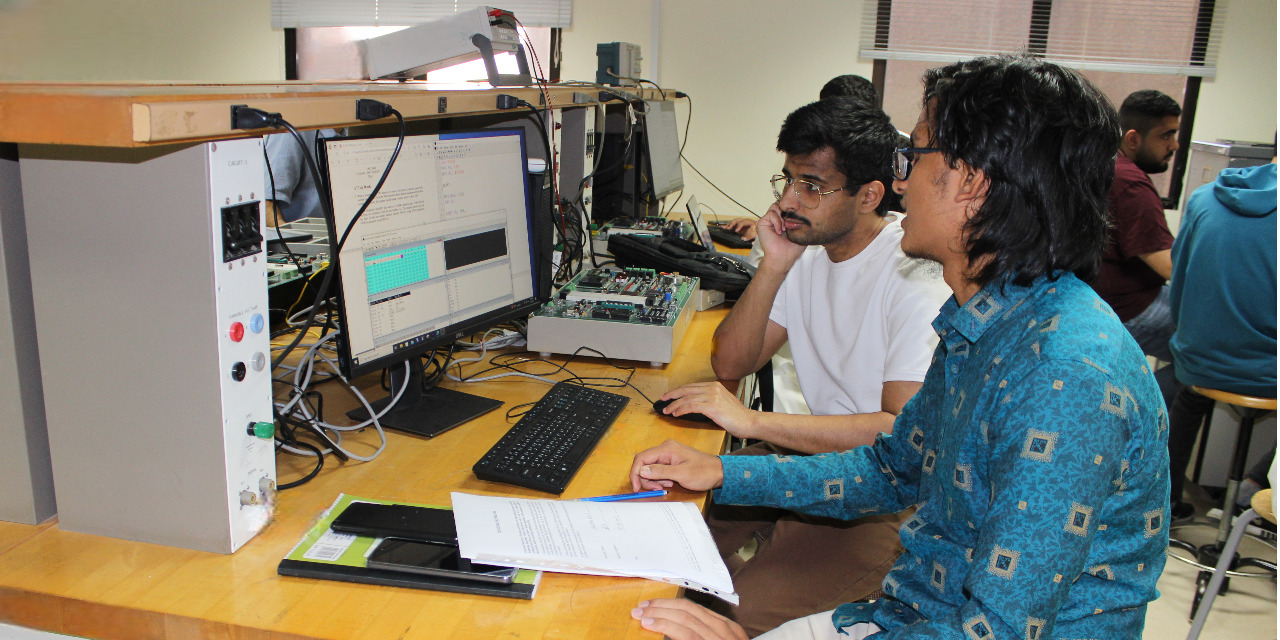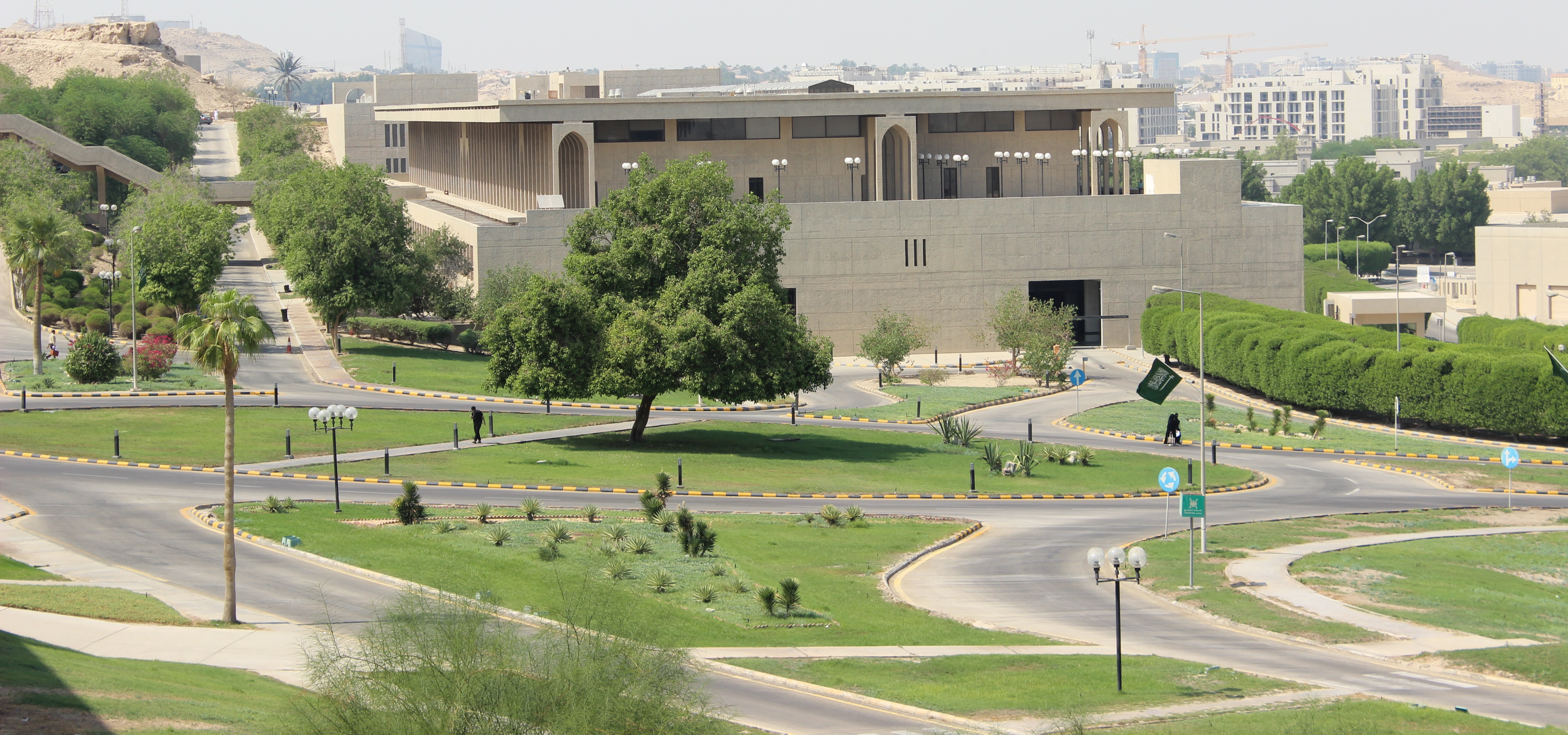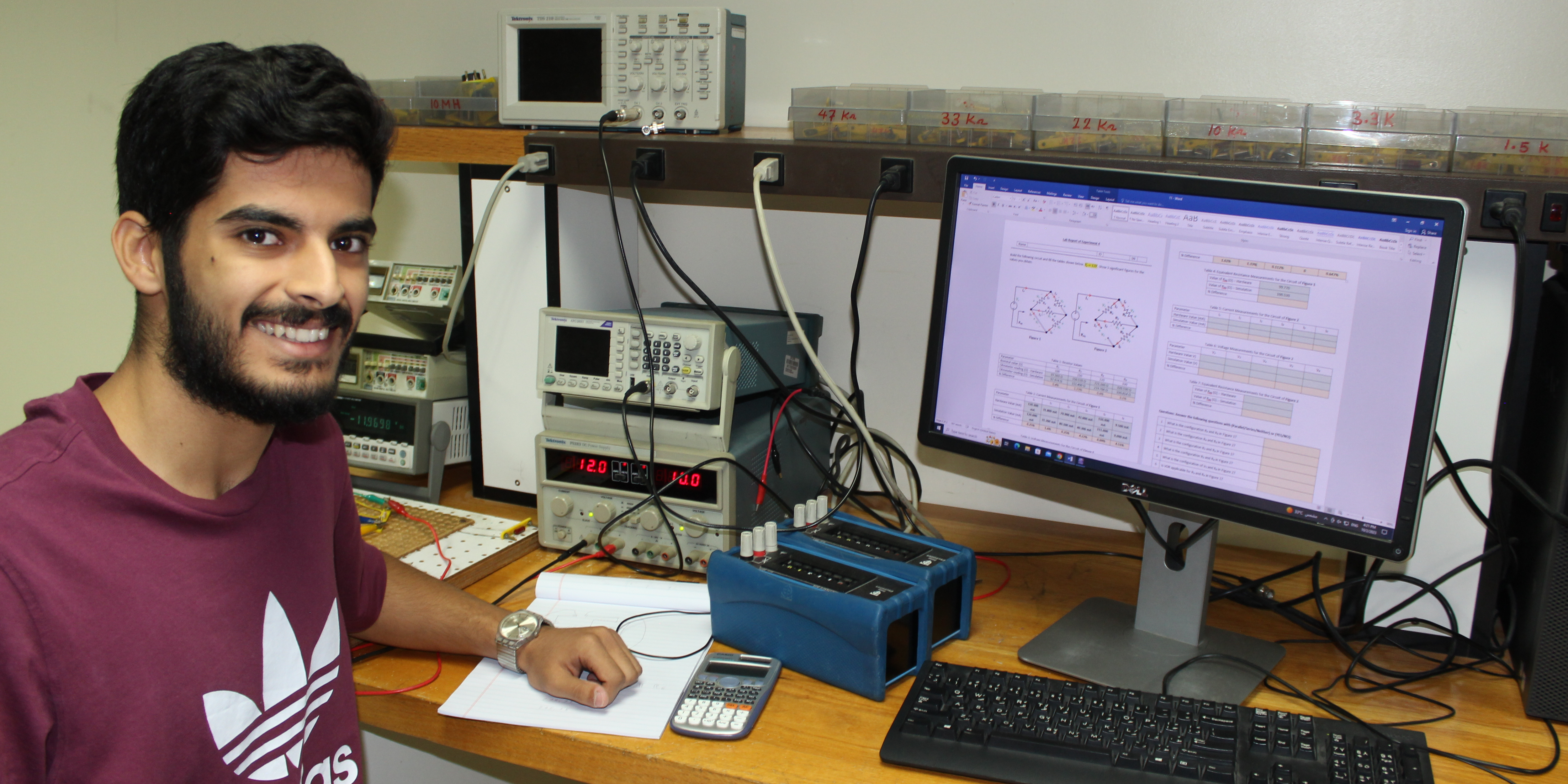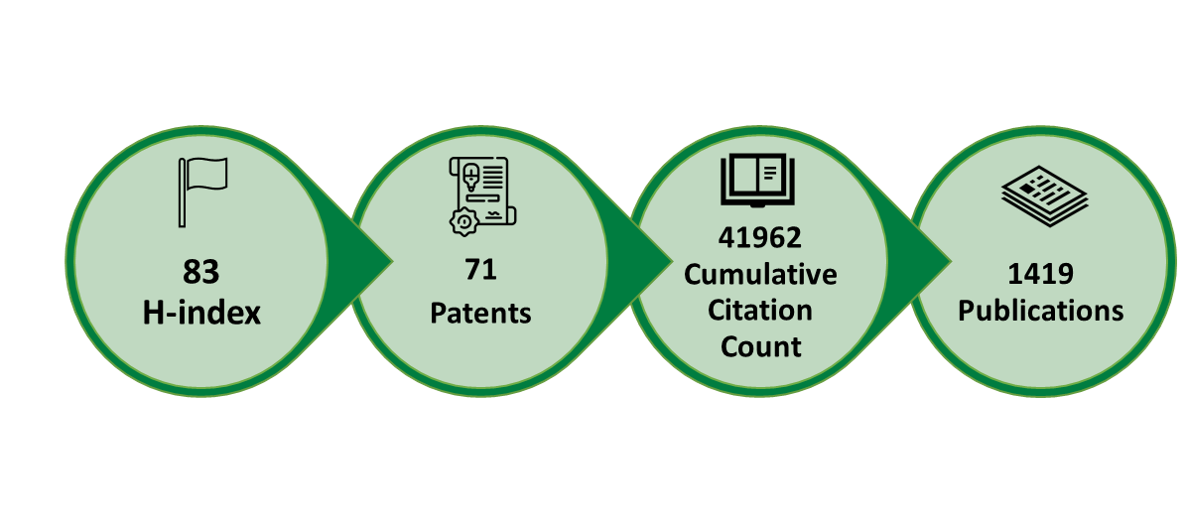Dream Big, Dream EE

Welcome to Electrical Engineering Department

The Future Starts Here

The Road to Success Begins

The Electrical Engineering department at KFUPM came into existence with the establishment of the University of Petroleum & Minerals in 1967. It is one of the largest departments in the University with an average number of students being approximately 900, 16% of whom are in the graduate program. The department provides 2 four-year undergraduate programs, Bachelor of Science in Electrical Engineering and Bachelor of Science in Electrical Engineering and Physics. The graduate program offers Master of Science and Master of Engineering in Electrical Engineering, Master of Science in Telecommunication Engineering, Master of Sustainable and Renewable Energy, Master of Wireless Communication Networks, and Ph.D. in Electrical Engineering.
The department has about 61 full-time faculty members in 6 specialized areas of research. The Groups in the department are: Energy Systems, Communications, Electronics, Control Systems, Electromagnetics, and Digital Signal Processing. Additionally, a pool of experienced engineers and technicians maintain more than 30 laboratories in the department.
To be globally known for skillful graduates and quality research with focus on national needs.
For more information, you can visit the following :

On December 11, 2024, Dr. Azeddine Beghdadi, a visiting professor from the University Sorbonne Paris Nord, delivered a compelling seminar titled Computational Visual Perception Models for Image/Video Processing and Analysis in the Era of Deep Learning. The seminar explored the intersection of human visual perception mechanisms and the advancements in computer vision powered by deep learning models.
Dr. Beghdadi highlighted how research into mammalian visual systems has paved the way for the current era of artificial intelligence, particularly deep neural networks, in solving complex computer vision problems. He emphasized that much of the work done over the past century in modeling perceptual vision mechanisms laid the groundwork for today's AI-driven solutions.
The seminar covered various applications of computer vision, focusing on intelligent video surveillance as a comprehensive example of how these models can be applied in real-world settings. Dr. Beghdadi also shared insights from his career, addressing key scientific questions and discussing how AI development should move beyond just practical applications to include a more holistic approach to design.
The event offered participants a deeper understanding of how deep learning continues to shape the field of visual perception and its practical applications in modern technology.
The following are the highlights of the event:


.jpg?sfvrsn=7c796a3c_1)
Constructing atomically thin electronics using MEMS
Adaptive and Secure Architectures for Next-Gen PONs: Efficiency, Trust, and Latency Solutions
Robotics and Autonomy: Current and Future Research Directions at the EE Department
The Electrical Engineering Department (EE) at KFUPM provides a world-class education and innovative learning experiences for both undergraduate and graduate students.
Click on the following button to access online admissions application portal :